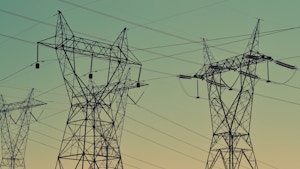 Eco-Business
Eco-Business
Edition
Southeast Asia's Clean Energy Transition / Vietnam
All Spotlight on Vietnam stories. Back to Sea's Clean Energy Transition.

SDG 12. Consumption
Asean could save up to US$800 billion on decarbonisation costs through fully interconnected grid, study shows
The new research findings coincide with Malaysia’s launch of its renewable energy exchange platform and new guidelines for the export of clean energy to neighbours Singapore and Thailand.

SDG 13. Climate
‘False climate solution’: NGOs push South Korea to drop renewables subsidies for biomass
Wood pellets burnt to generate energy drive deforestation in Southeast Asia, emit more CO2 per unit of energy than fossil fuels and support the Ukraine conflict, environmentalists said in an open letter to Korea's trade ministry.

SDG 13. Climate
El Niño, burning peatlands and coal: Air pollution in Southeast Asia got worse in 2023
The El Niño weather phenomenon, smouldering peatlands, coal power and vehicular pollution caused a big drop in air quality in Southeast Asia in 2023. In Indonesia, Southeast Asia's most polluted country, air quality fell by 20 per cent.

Non-profit RimbaWatch says Grab's scheme is based on questionable forest carbon projects. The ride-hailer argues that carbon credits can be a credible means to cut emissions.

Ex-BNP Paribas executive Cyril Dissescou to take over from an interim chief of the joint venture formed to develop renewables and energy storage assets in Southeast Asia and Australia.

EB Studio
Southeast Asia’s transition to clean energy will require cross-border collaboration on infrastructure development and regulatory frameworks, say experts.

Demand for the new class of carbon credits proposed by Singapore's central bank will depend on the integrity of projects, what they can be used for and how effectively risks are addressed, say investors.

SDG 16. Peace
‘The red line is shifting’: Environmental journalists in Asia feel the squeeze on freedom to speak truth to power
For some, environmental issues had felt like safe reporting territory a few years ago, but that is no longer the case. Journalists from India to Thailand share the constraints they face when reporting on powerful governments and corporations.

Indonesia, Vietnam and the Philippines have cancelled almost 13GW of coal projects in 2022, but this is far from what is needed to phase out the fossil fuel over the next two decades, a new report from Global Energy Monitor has revealed.

Sold-out long-term liquified natural gas contracts and project delays may force a rethink for the Philippines, Vietnam and Thailand to rely on previously-forecasted LNG growth, according to a report by global think tank IEEFA.

While the world made some progress in 2022 to address climate change and protect nature, much remains to be done to overcome entrenched interests.

From Asia becoming a key fossil fuel provider to high-tech agriculture, these are the trends that could reshape society and business as the world navigates global uncertainty borne out of the Russian-led conflict in Ukraine.


Transforming Innovation for Sustainability Join the Ecosystem →







